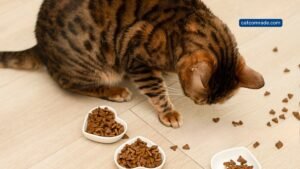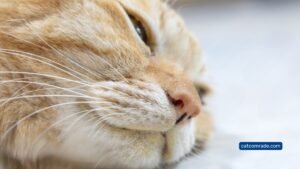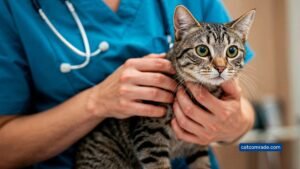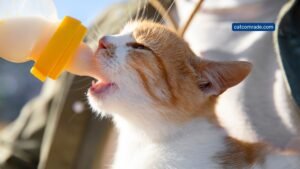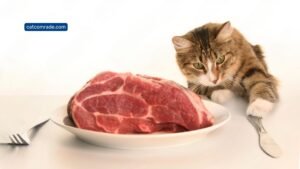What to Feed a Sick Cat: Essential Foods for Quick Recovery
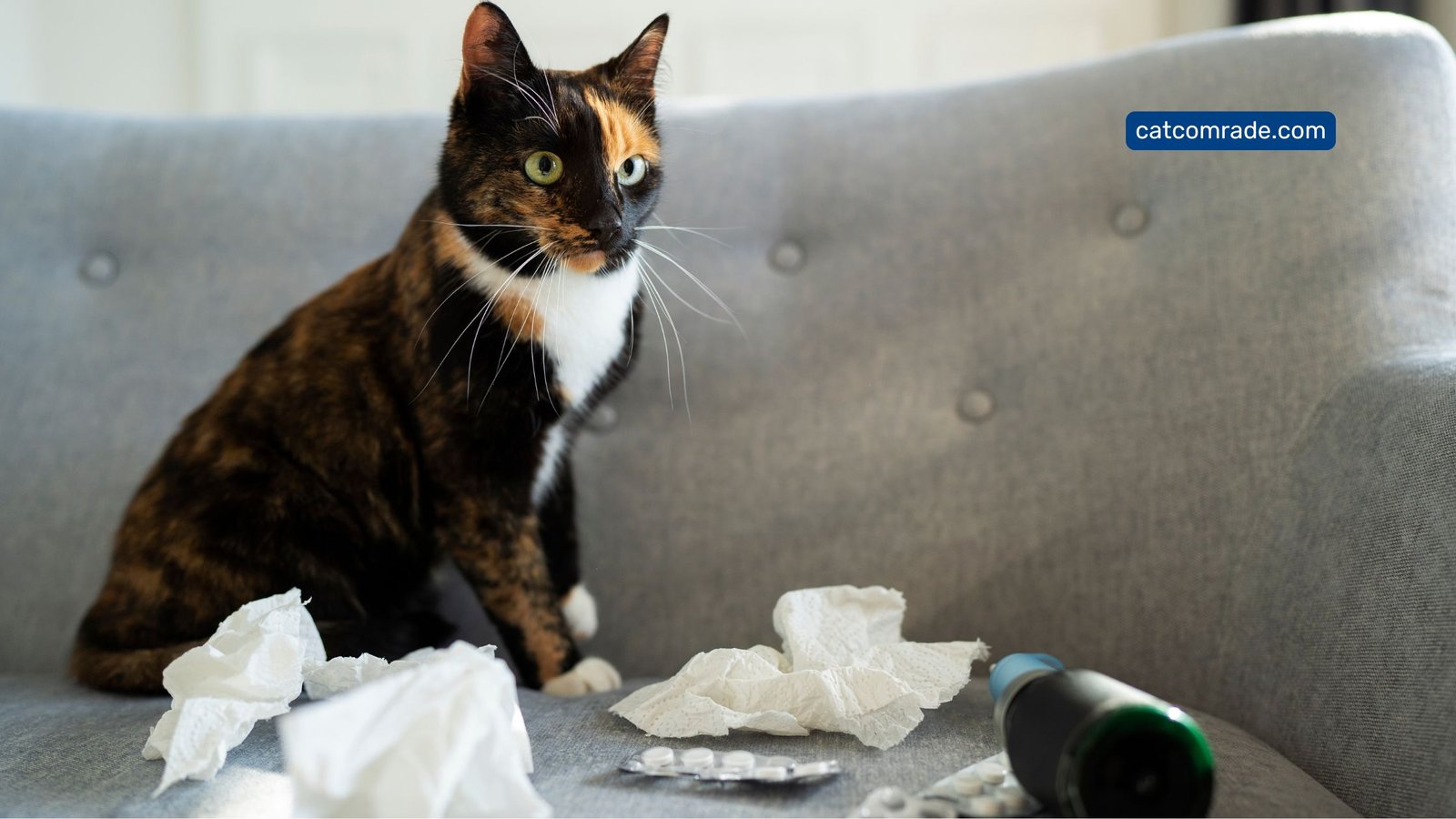
When your cat is feeling under the weather, knowing what to feed them can be confusing and stressful.
You want to help your furry friend recover quickly, but not all foods are safe or easy for a sick cat to eat.
Giving the right nutrition can make a big difference in your cat’s healing process and comfort.
You’ll discover simple, effective tips on feeding a sick cat that can ease your worries and support your pet’s health.
Keep reading to learn exactly what your cat needs when they’re not feeling their best.
Signs Your Cat Needs Special Food
Cats often hide their pain, but some signs show they need special food. Sick cats may need diets that are easy to digest or help with healing.
Watching your cat closely helps you spot these signs early. Special food can support their recovery and improve comfort.
Changes In Appetite
A sudden drop in eating is a clear sign. Your cat may refuse their usual food or eat less than normal.
Sometimes, they may crave different textures or flavors. Loss of appetite can lead to weakness and slower healing.
Special food can be gentle and more appealing to sick cats.
Vomiting And Diarrhea
Frequent vomiting or diarrhea is a sign of a sensitive stomach. These symptoms can cause dehydration and nutrient loss.
Regular food may worsen the problem. Veterinary diets with easy-to-digest ingredients help soothe the gut.
These foods support recovery and reduce discomfort.
Lethargy And Weakness
A tired, weak cat needs extra care. Illness drains energy, making your cat less active.
Special food with balanced nutrients provides energy and supports the immune system.
Proper nutrition helps your cat regain strength faster. Watch for changes in activity and appetite closely.

Credit: www.reddit.com
Hydration Importance
Hydration is very important when a cat is sick. Water helps the body fight infection and heal faster.
Sick cats may drink less, so careful attention is needed. Keeping your cat hydrated supports kidney function and overall health.
Dehydration can worsen symptoms and slow recovery.
Water Intake Tips
Offer fresh water often throughout the day. Use a clean bowl to encourage drinking. Try shallow dishes or wide bowls for comfort.
Place water bowls in quiet, easy-to-reach spots. Some cats prefer running water, so a pet fountain helps.
Watch your cat’s drinking habits closely. If your cat is not drinking, try adding water to food.
Using Broths And Fluids
Broths add flavor and extra fluids for hydration. Use low-sodium chicken or beef broth without onions or garlic.
Warm broth can attract sick cats to drink more. Avoid broths with added spices or salt.
You can also offer ice cubes made from broth. These provide hydration and a tasty treat.
Broths support fluid intake and improve appetite gently.
Easy-to-digest Foods
Sick cats need gentle foods that do not upset their stomachs. Easy-to-digest foods help them get nutrients without causing discomfort.
These foods are soft, bland, and low in fat. They support healing and keep your cat hydrated.
Boiled Chicken And Turkey
Boiled chicken and turkey are excellent choices for sick cats. They are lean meats with no added spices or oils.
These proteins are gentle on the stomach and easy to digest. Cut the meat into small pieces to help your cat eat easily.
Avoid skin and bones as they can cause problems.
Plain Rice And Pumpkin
Plain rice provides simple carbohydrates that are mild on the digestive system. It adds bulk without causing irritation.
Pumpkin is rich in fiber and helps with digestion. Serve plain cooked rice mixed with a small amount of pumpkin.
This combination soothes the stomach and supports bowel health.
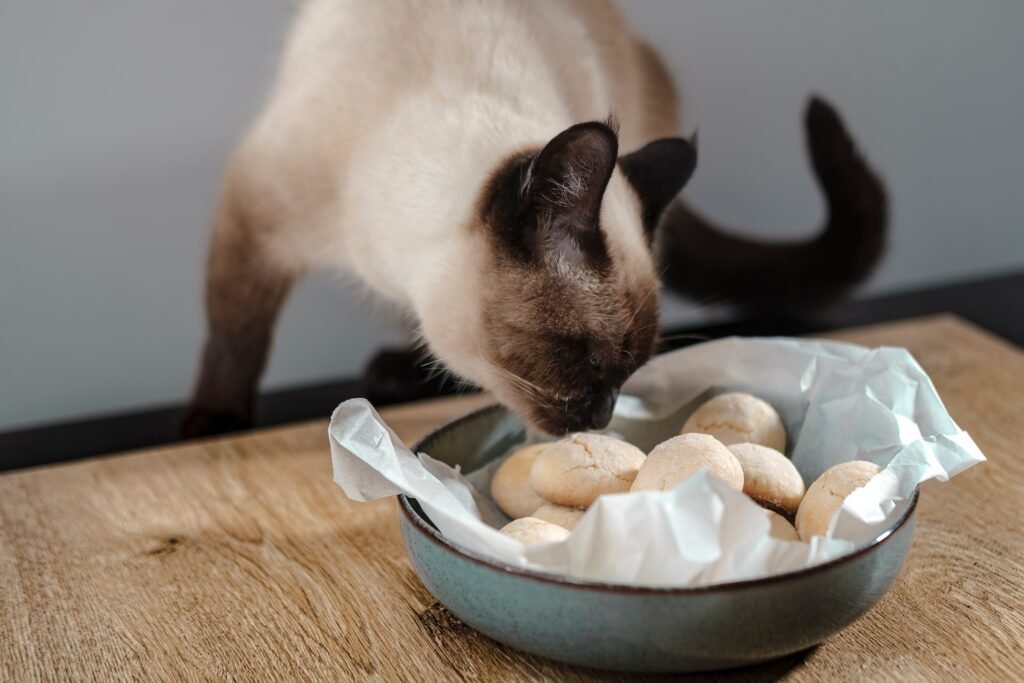
Credit: astonvet.com
Commercial Diet Options
Choosing the right food helps a sick cat recover faster. Commercial diet options offer balanced nutrition made for cats with health issues.
These diets support healing and provide essential nutrients.
Prescription Cat Foods
Prescription cat foods are made for specific illnesses. Your vet prescribes these diets to meet your cat’s medical needs.
They contain special ingredients to help with kidney, liver, or digestive problems.
These foods are easy to digest and gentle on the stomach. They often have controlled protein and fat levels.
Prescription diets help manage symptoms and improve your cat’s quality of life.
Over-the-counter Recovery Diets
Over-the-counter recovery diets are available without a vet’s prescription. They provide extra calories and nutrients for sick cats.
These diets support energy and strength during illness or after surgery.
Many brands offer wet and dry options. Wet food helps keep your cat hydrated.
These diets are designed to be tasty and easy to eat. They can encourage your cat to eat more when feeling unwell.
Foods To Avoid
Feeding a sick cat requires careful choices. Some foods can harm your cat’s recovery. Avoid these to keep your pet safe and comfortable.
Dairy And Fatty Foods
Cats often cannot digest dairy well. Milk and cheese might cause stomach upset or diarrhea.
Fatty foods strain the cat’s liver and pancreas. Avoid greasy or oily foods to prevent discomfort.
Human Junk Food
Chips, candy, and fast food contain harmful ingredients. Salt and spices can hurt a cat’s health.
Junk food lacks nutrients needed for healing. Feeding these can slow recovery and cause illness.
Feeding Frequency And Portions
Feeding a sick cat requires special care with how often and how much you feed. Sick cats may have less appetite or feel weak.
Giving smaller, more frequent meals helps them eat enough without stress.
Proper portion sizes prevent overfeeding and keep their digestion smooth.
This section explains the best feeding frequency and portion control for sick cats.
Small, Frequent Meals
Offer your cat small meals several times a day. This approach makes eating easier for a cat that feels unwell.
Large meals can overwhelm their stomach or cause nausea. Small portions help maintain energy and hydration.
Aim for four to six small meals daily instead of one or two big ones.
Monitoring Intake
Keep track of how much your cat eats each day. Note any changes in appetite or food refusal. Monitoring helps detect if the cat’s condition is improving or worsening.
If your cat eats less than half of the offered food, contact your vet. Adjust feeding amounts based on your cat’s response and health needs.
When To Consult A Vet
Knowing when to consult a vet is very important for your sick cat. Cats hide pain well, so watch carefully.
Early action can prevent serious problems. Some signs mean your cat needs professional help.
Persistent Symptoms
If your cat keeps vomiting or has diarrhea for more than 24 hours, see a vet. Loss of appetite lasting over a day is a warning.
Breathing problems or sudden weakness need quick vet attention. Any change in behavior that lasts should not be ignored.
Persistent symptoms show your cat needs more than home care.
Dietary Supplements And Medications
Do not give your cat supplements or medicines without a vet’s advice. Some human medicines are toxic to cats.
Only a vet can suggest safe options. Supplements may help but require proper dosing.
The vet will guide you on what is safe and effective. Wrong treatments can make your cat sicker.

Credit: www.reddit.com
Frequently Asked Questions
What Foods Are Best For A Sick Cat?
Offer bland, easy-to-digest foods like boiled chicken or rice. Avoid dairy and fatty foods. Consult your vet for specific dietary needs.
How Often Should I Feed A Sick Cat?
Feed small, frequent meals every 3-4 hours. This helps prevent nausea and encourages eating. Monitor your cat’s appetite closely.
Can I Give Wet Or Dry Food To A Sick Cat?
Wet food is preferable as it provides hydration and is easier to eat. Dry food can be hard to chew if your cat is unwell.
Should I Avoid Certain Foods For A Sick Cat?
Yes, avoid spicy, salty, or fatty foods. Also, do not give human treats or milk, as they may worsen illness or cause upset stomach.
Conclusion
Feeding a sick cat needs care and patience. Choose gentle, easy-to-digest foods. Keep meals small and offer them often.
Watch your cat’s reaction to new foods closely. Always provide fresh water to keep them hydrated.
Consult your vet for the best diet advice.
Feeding with love helps your cat heal faster. Stay calm and observe changes every day.
A healthy diet supports your cat’s recovery well. Caring for a sick pet is tough but rewarding.

